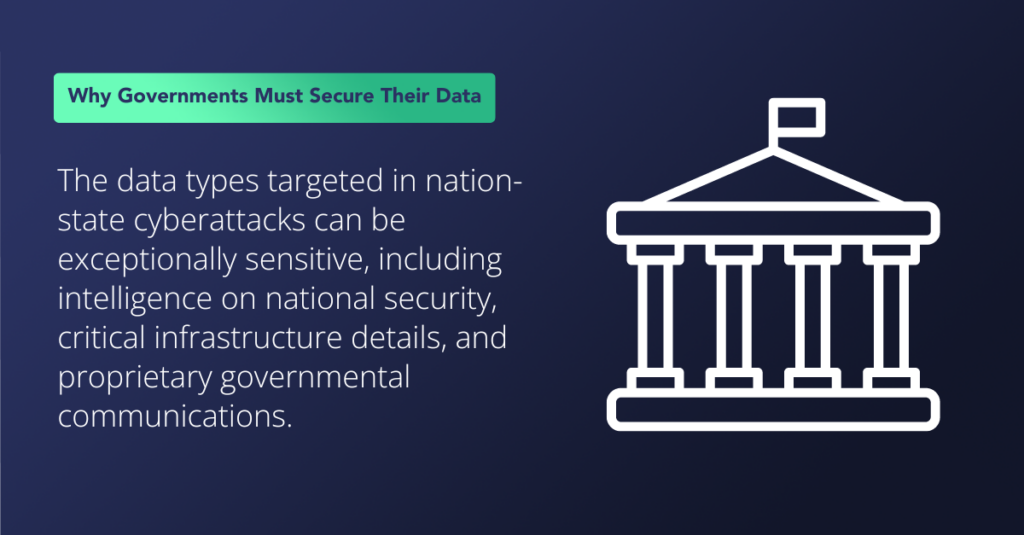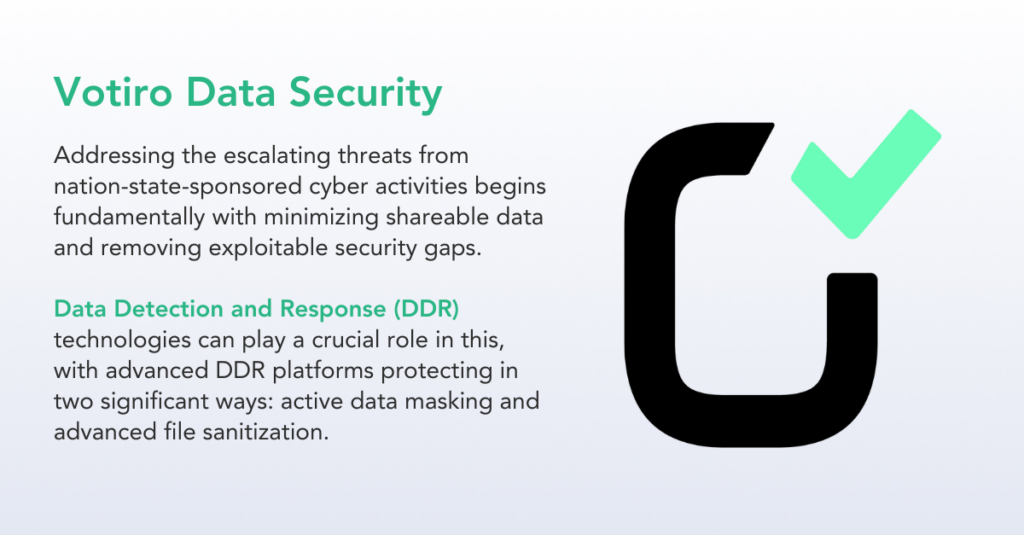Nation-State Cyber Threats: The Hidden War on Infrastructure

Communication giants AT&T, Verizon, and Lumen were recently targeted by the hacking group Salt Typhoon in a sophisticated cyber attack against U.S. broadband providers. These providers were targeted based on having fulfilled lawful wiretapping requests by the U.S. Government. As service providers, these companies have in-depth visibility into their customers’ data usage, including customers from foreign nations and government agents. This breach gave hackers access to systems that could monitor and intercept legally authorized communications.
The implications of this breach are profound, affecting national security and communications privacy. Sensitive and legal government-mandated snooping became a target of attackers, as did the infrastructure that supports it. This access could give nation-backed attackers a major leg up in cyber espionage, allowing them to tap communications without the required legal steps that limit U.S. government entities from spying on anyone at will.
This incident has led to reevaluating cybersecurity protocols and measures within the government and the private sector, stressing the importance of fortifying defenses against increasingly sophisticated and state-sponsored cyber threats.
The Risk and Reward of Third-Party Vendors
Government agencies require the help of third-party entities to provide critical services, including information technology or specialized consulting. These partnerships can significantly enhance the efficiency and scope of government operations, introducing expertise and technological advancements that are not inherently available within the government due to a number of varying factors including budgeting and staffing limitations.
Yet, this expansion of services often results in the third party having in-depth access to sensitive government information, which can introduce additional security risks. As these entities interact with sensitive government data, any vulnerability in their security posture can increase the attack surface, potentially exposing government systems to cyber threats.
Expanding the attack surface due to third-party involvement necessitates a stringent assessment of these partners’ security measures. While they bring valuable capabilities to government operations, the interconnectivity between their systems and government networks means that any security lapse on their part could have far-reaching consequences. This dynamic places a premium on rigorous cybersecurity protocols, regular audits, and a shared commitment to safeguarding data, ensuring the collaboration enhances capabilities without compromising security.
Nation-State Threats
Nation-state threats in cybersecurity are increasingly executed through proxy teams or groups that act as extensions of a government’s strategic interests. Often sponsored by their home nations, these puppet teams are equipped with state-of-the-art resources and intelligence, making them significantly more capable and dangerous. This sponsorship enhances their operational effectiveness and provides a veneer of deniability to the sponsoring state, allowing them to engage in cyber espionage or disruption while maintaining an official distance from the activities.
The use of such proxy groups provides a layer of deniability for the sponsoring nation, complicating international response and attribution. This strategy allows countries to push their geo-political agendas covertly under the guise of independent actors. The deniability and indirect involvement in cyber activities help these nations avoid direct confrontations or sanctions while achieving strategic objectives. This makes nation-state threats through puppet teams a complex and pressing issue in international cybersecurity dynamics.

Broad Implications
While these cyber attacks are carried out by proxy teams, they are fundamentally actions orchestrated and sponsored by nation-states. This orchestration means that even if the immediate perpetrators are third-party groups, the strategic directive and resources are typically provided by a government. These attacks are not merely isolated incidents but are a form of indirect warfare, with the sponsoring nation using cyber means to achieve what might otherwise require open conflict.
The data types targeted in such cyberattacks can be exceptionally sensitive, including intelligence on national security, critical infrastructure details, and proprietary governmental communications. The implications are grave in scenarios where this information falls into the hands of foreign nations, with whom relations may already be strained. Access to such data could enable foreign powers to undermine national security, manipulate diplomatic interactions, or gain strategic advantages, further complicating international relations and national defense strategies.
Addressing Escalated Threats
Addressing the escalating threats from nation-state-sponsored cyber activities begins fundamentally with minimizing shareable data and removing exploitable security gaps. Data Detection and Response (DDR) technologies can play a crucial role in this, with advanced DDR platforms protecting in two significant ways: active data masking and advanced file sanitization.
Real-time Data Masking
By employing real-time obfuscation to anonymize data (such as personal identifiable information – PII) while it’s still in motion, government agencies can keep the right data in the right hands. Advanced DDR platforms allow organizations to use fine-grained security controls to choose the specific data types they would like to mask, as well as keep it anonymized while in storage, shared via collaboration platforms, and uploaded to third-party portals – all while providing peace of mind that even if data should be intercepted, it cannot be exploited.
Proactive Malware Mitigation
While antivirus (AV) tools are effective against known threats forming the bulk of common cyberattacks, nation-state actors often deploy novel and unique malware that traditional AV cannot detect. Using Content Disarm and Reconstruction (CDR) within DDR frameworks enhances security by dismantling incoming files and reconstructing them using only known-safe components, significantly mitigating the risk of zero-day threats that often lead to data exfiltration.
Advanced CDR solutions take this to the next level by reconstructing safe files with their intended functionality and fidelity intact. Not only does this method ensure a robust defense against the sophisticated malware used in state-sponsored cyber operations, it keeps government agencies running smoothly by not holding up productivity.

Votiro Helps Address Nation-State Threats
At Votiro, we take a Zero Trust approach to data security, which is especially beneficial for government entities as it does not trust any file by default – no matter how many times it tries to cross secure boundaries.
By deconstructing all incoming files and employing advanced CDR technology, Votiro ensures that malware threats are removed while maintaining the functionality of essential files like those containing macros. Unlike other CDR vendors, Votiro’s CDR process is crucial for government agencies that handle sensitive information and require high security and operational efficiency.
Simultaneously, Votiro’s real-time data masking intelligently identifies private information attempting to cross boundaries, then automatically limits access based on user permissions and company-specific policies. This keeps agencies compliant with strict and ever-changing privacy regulations, while limiting the ability of threat actors to gain access to sensitive information – whether internally or via third-party vendors.
Contact us today to learn why organizations all across the globe have trusted Votiro to avoid costly data breaches, using our zero trust cybersecurity solutions to defend their employees and customers against hidden threats and privacy risks in billions of files so far. We’re here to help you put nation-state cyber threats to rest.
For those attending GovWare, visit the Votiro booth – M15 – to discuss the needs of your agency and how our technology is designed to help you remain secure.
News you can use
Stay up-to-date on the latest industry news and get all the insights you need to navigate the cybersecurity world like a pro. It's as easy as using that form to the right. No catch. Just click, fill, subscribe, and sit back as the information comes to you.
Sign-up Here!
Subscribe to our newsletter for real-time insights about the cybersecurity industry.



